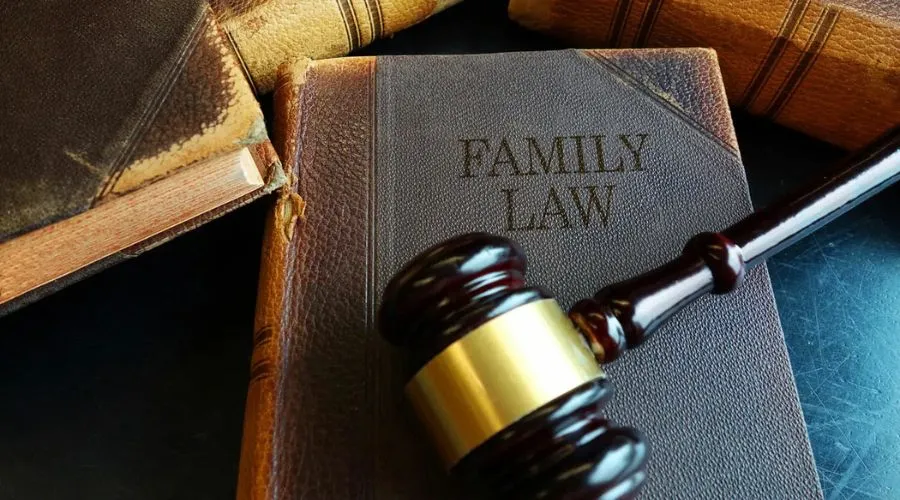Family is the foundation of society. It is where we learn our values, form our relationships, and grow up. This makes it our duty to look after our families and make sure they are healthy and strong. In the United States, family laws play a big role in helping families thrive. These laws cover everything from marriage and divorce to child custody and support. They help to ensure that families are treated fairly and that their rights are protected. In this blog, we will give you a rundown of the different types of American family laws. We will explore the key components of these laws and explain how they work. We will also highlight reliable resources that you can trust to help navigate the complexity of these laws and regulations. Let’s dive in!
What is family law?
Family law encompasses the legal aspects of familial relationships, covering a wide range of issues like marriage, divorce, child custody, adoption, domestic violence, and reproductive rights.
How is family law in the US structured?
American Family laws are primarily governed by state law. Each state has its own family code, which sets forth the specific laws and procedures governing family matters. However, there are also some federal laws that apply to family law, such as the Uniform Marriage and Divorce Act (UMDA) and the Child Support Enforcement Act (CSEA).
What are the different types of American family laws?
Marriage Laws

Under American family laws, marriage is a legal contract that comes with rights and responsibilities.
- Marriage Requirements: Each state has its own requirements for obtaining a marriage license. These typically include age restrictions, blood tests (in some states), and a waiting period.
- Marriage Validity: A marriage that is legally recognised in one state is generally recognised in all other states.
- Same-Sex Marriage: Same-sex marriage is legal nationwide in the United States, granting equal rights and benefits to same-sex couples.
Divorce and Legal Separation
Divorce and legal separation are processes through which couples legally end their marriage or live separately. Here’s what you need to know:
- Grounds for Divorce: Most states offer “no-fault” divorces, which means that couples can divorce without proving fault or misconduct. Some states also recognise “fault-based” grounds, such as adultery or abuse.
- Division of Assets and Debts: In case of divorce, marital property and debts are divided based on principles of equitable distribution or community property, depending on the state laws.
- Child Custody and Support: When children are involved, courts prioritise their best interests. Custody arrangements can be joint or sole, and child support may be awarded to the custodial parent.
Child Custody and Support

Child custody and support laws are designed to protect the well-being of children after their parents’ divorce or separation. These laws ensure that children have a safe and stable home and that they are financially supported. Here’s what you need to know:
- Types of Custody: Custody can be physical (where the child resides) and legal (decision-making authority). It can be joint or sole, depending on the child’s best interests.
- Child Support: Child support is financial assistance that the non-custodial parent pays to the custodial parent to help support the child. The amount of child support is determined by a variety of factors, including the income of both parents, the number of children, and the cost of living in the area.
Adoption and Foster Care
Adoption and foster care provide stable and loving homes for children in need. Here are key points to consider:
- Adoption: Adoption laws vary by state but generally involve a legal process to establish the parent-child relationship between adoptive parents and the child.
- Foster Care: Children who cannot live with their birth parents may be placed in foster care. Foster parents provide temporary care while the child’s long-term plans are determined.
Domestic Violence and Protective Orders
American Family laws provide a number of protections for victims of domestic violence, including protective orders and legal remedies. Here’s what you need to know:
- Protective Orders: Protective orders, also known as restraining orders or orders of protection, can be obtained to safeguard individuals from domestic violence or abuse.
- Legal Remedies: Family law provides legal remedies for victims of domestic violence, including temporary custody, eviction of the abuser, and financial support.
Why is it important to know about American family laws?

Family law is an important area of law that governs the legal aspects of family relationships. It includes a wide range of issues, including marriage, divorce, child custody, adoption, domestic violence, and reproductive rights.
It is important to know about American family laws for a number of reasons:
- To protect your rights. Family laws are designed to protect the rights of family members. By knowing about these laws, you can be better equipped to protect your own rights and the rights of your loved ones.
- To make informed decisions. Family law matters can be complex and have a significant impact on your life. By knowing about the relevant laws, you can make more informed decisions about your options.
- To resolve disputes. If you are involved in a family law dispute, knowing about the relevant laws can help you resolve the dispute in a fair and efficient manner.
Nolo: Your Trusted Resource for American Family Laws Information
When it comes to navigating the intricacies of American family law, having access to reliable and accurate information is essential. One valuable resource that can assist you in understanding family law matters is Nolo. Nolo is a reputable legal agency and platform that provides comprehensive legal information, resources, and attorneys for individuals seeking guidance on various legal topics, including family law.
Extensive Legal Information
Nolo offers an extensive collection of articles, guides, FAQs, and legal forms related to family law. Their resources cover a wide range of topics, including marriage, divorce, child custody, child support, adoption, domestic violence, and more. These resources are designed to provide individuals with the knowledge they need to make informed decisions about their legal matters.
Expert-authored Content
One of the strengths of Nolo is its commitment to providing high-quality content created by legal experts. The articles and guides on Nolo are written by experienced attorneys who specialise in family law.
Interactive Tools and Legal Forms
In addition to informational content, Nolo offers a variety of interactive tools and legal forms that can assist you in managing your family law matters. These tools can help you calculate child support, create parenting plans, prepare divorce documents, and more. By utilising these resources, you can streamline your legal processes and ensure accuracy in your legal documentation.
Lawyer Directory
Nolo’s Lawyer Directory is a free online resource that helps you find lawyers in your area who specialise in the legal area you need help with. You can search the directory by location, practice area, and other criteria. The directory includes profiles of lawyers who have been vetted by Nolo. Each profile includes information about the lawyer’s experience, education, and areas of practice.
Additional Legal Services
Apart from its extensive online resources, Nolo also provides access to legal services. Through their Lawyer Directory, you can find qualified family law attorneys in your area who can provide personalised legal advice and representation for your specific situation. Nolo’s attorney listings include detailed profiles, allowing you to evaluate potential attorneys based on their experience, credentials, and client reviews.
Conclusion
Understanding American family laws is important for anyone involved in family-related matters. Whether it’s getting married, going through a divorce, or dealing with child custody, having knowledge of the legal framework can help protect your rights and ensure the well-being of your family. By familiarising yourself with the basics of family law, you can make informed decisions and seek the necessary legal support when needed. For more such updates, visit Celebzero.






